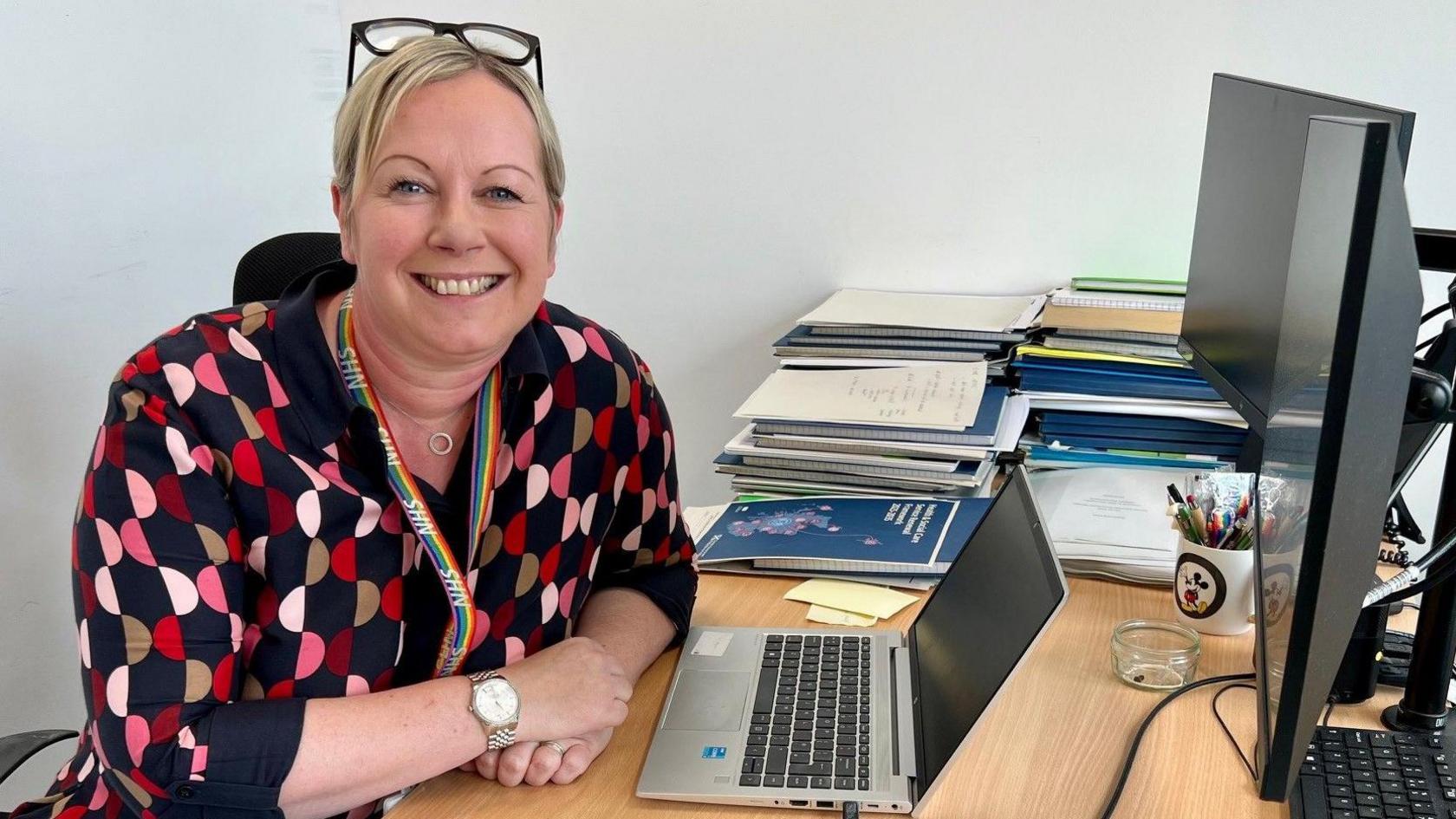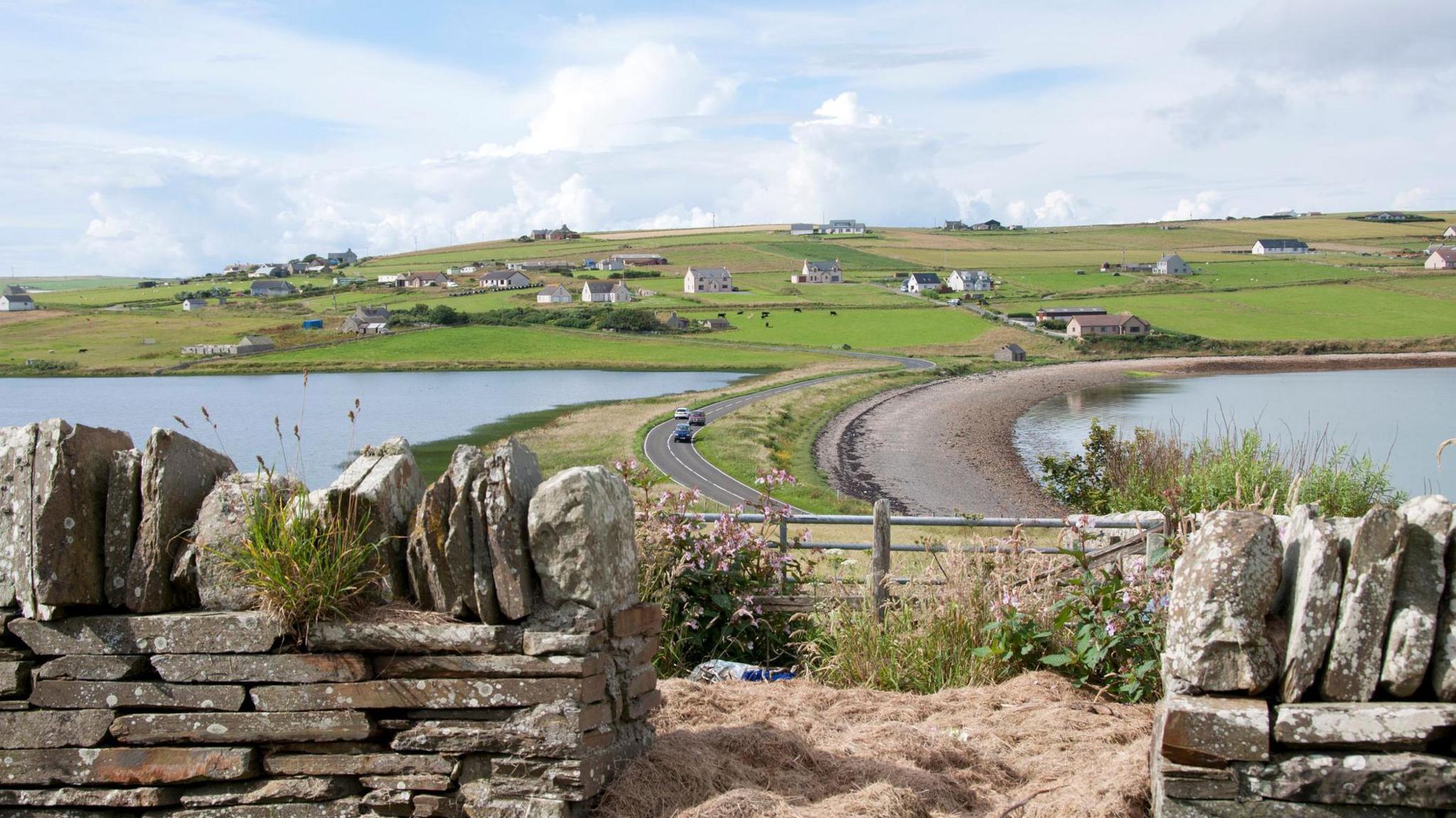Outgoing NHS Orkney boss warns of future challenges

Laura Skaife-Knight says communities would be involved in any future changes
- Published
NHS Orkney's outgoing chief executive says the islands' health service is too expensive and needs to change to be financially and clinically sustainable.
Laura Skaife-Knight said waiting times and patient outcomes in some services would be improved if care was delivered by other health boards.
She also said closer working with Orkney Islands Council would remove duplication in some areas, and help to improve efficiency.
Ms Skaife-Knight, who is leaving to take up a similar role at financially-challenged NHS Grampian, said communities would be at the centre of any changes.
NHS Orkney was one of few boards in Scotland to deliver and achieve its financial plan for 2024/25, according to its latest annual accounts, external.
Ms Skaife-Knight told BBC Radio Orkney pain services and ophthalmology - the diagnosis and treatment of eye diseases - were examples of services that could potentially be better delivered elsewhere.
She said: "I think the simple reality is if we look at NHS Orkney as it is today, it is unsustainable in its current shape and form in the future.
"We know we've got a number of fragile services and unsustainable services that we need different models of care for moving forward."
The health boss said NHS Orkney had already been successful in making improvements for patients and staff, and had plans in place to look at potential further changes.
She added: "Firstly, our community have the absolute right to say that we should deliver excellent care and excellent services locally wherever possible.
"And that is our starting point.
"But NHS Orkney in its current form is not financially viable moving forward or clinically viable."
'Fragile services'
Ms Skaife-Knight said patients recognised which services were "fragile", and some services already relied on the support of teams visiting from mainland health boards.
She said this reliance on visiting teams made some of its services "patchy".
"That's something we just cannot continue," she said.
Orkney is home to more than 22,000 people but faces challenges caring for the growing proportion of older people in the community., external
Ms Skaife-Knight sought to provide reassurance on proposals to reform the way care is delivered in the islands.
She said: "I know there's lots of conversations about single authority models, but actually, firstly and foremost, there are no models on the table."

Orkney is home to about 18,400 people
Ms Skaife-Knight's comments come at a critical time for the delivery of public services in the islands.
Orkney Islands Council has also been struggling to contain its spending, particularly delivering its social care services.
The Scottish government is bringing the health board and the council together in a series of meetings this autumn which will identify how they deliver health and care more efficiently.
An islands council spokesperson said: "We are committed to exploring and considering opportunities for collaboration and examining alternative service delivery models if they would provide greater fiscal security and economic opportunity for Orkney and protect and improve vital local community services and facilities."
Health Secretary Neil Gray said health boards were expected to plan and deliver services to meet the needs of local populations.
He said: "We are focused on improving access to services and treatments in the community, and will ensure the same high-quality care is provided, no matter where someone lives, including planning for the unique needs of rural and island communities.
"This will mean allocating resources not only based on population size, but also on the specific health challenges faced by different areas, including rural and island communities, where access to care can be more limited."